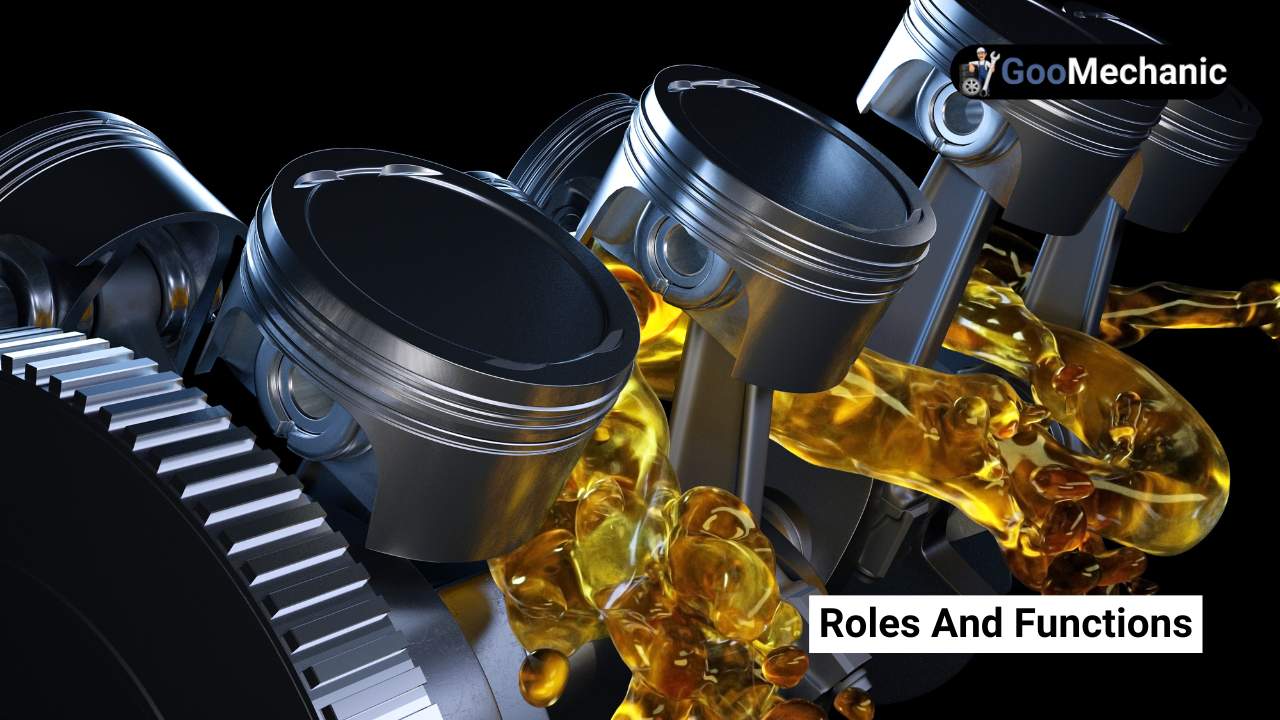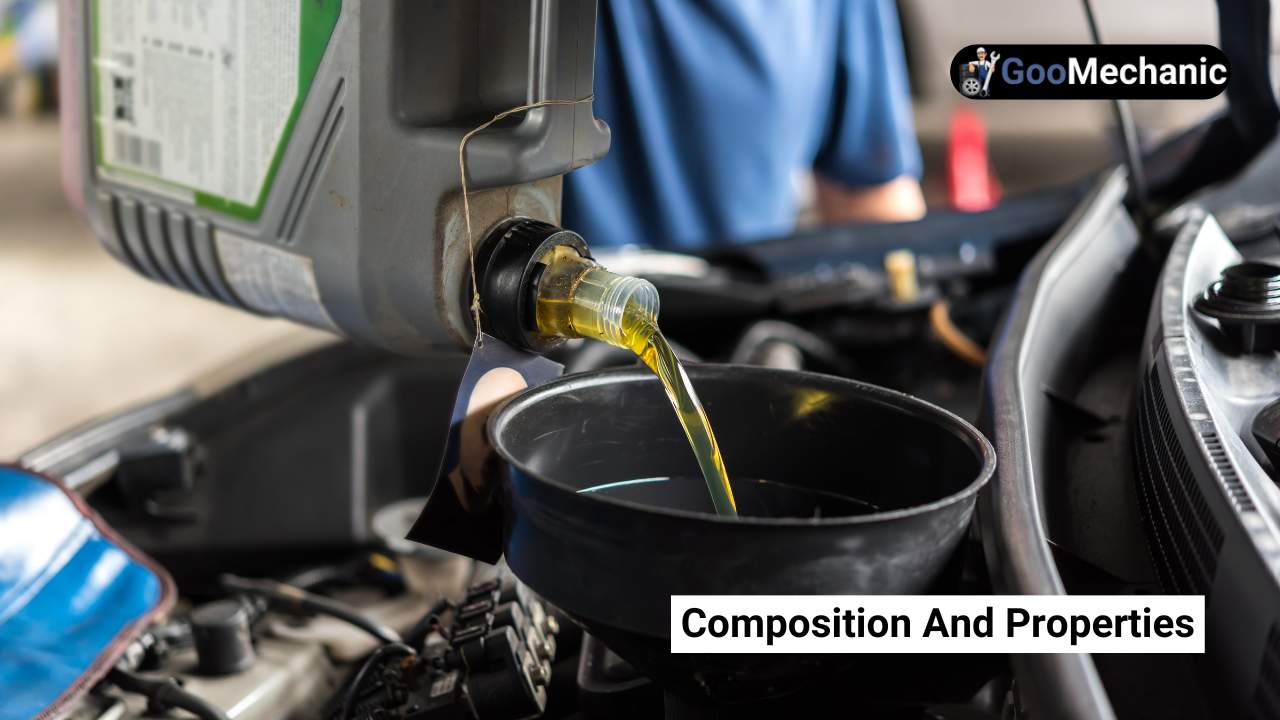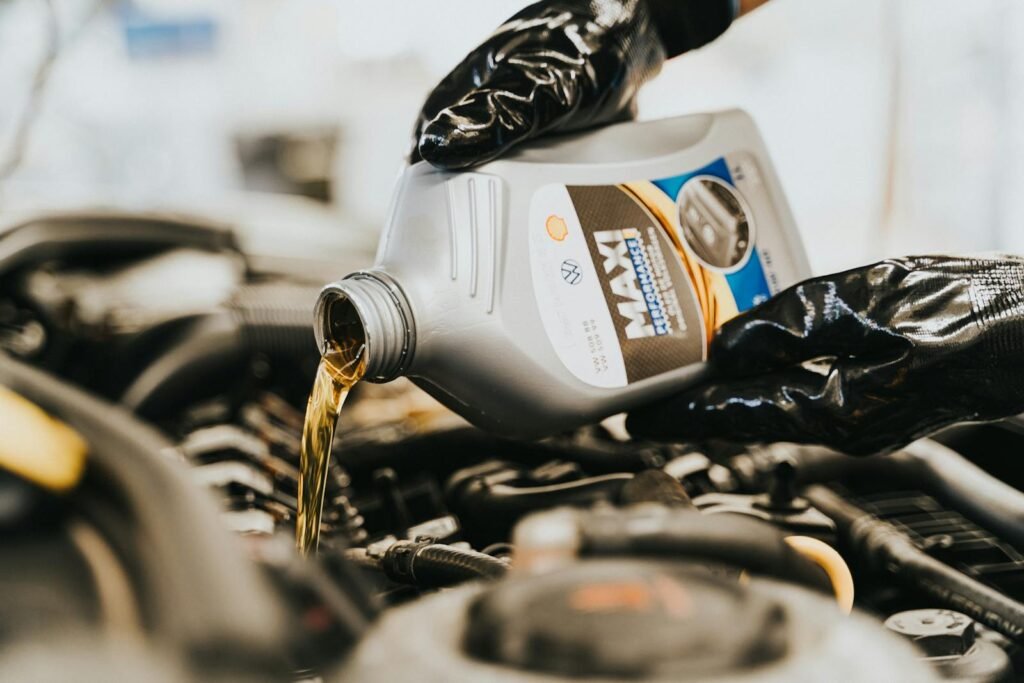Transmission fluid is not the same as engine oil. They serve different functions within a vehicle.
Transmission fluid lubricates and cools the transmission system. Engine oil, on the other hand, lubricates and protects the engine’s moving parts. Each fluid is formulated with specific properties for its designated system. Using the correct fluid type is crucial for optimal vehicle performance.
Incorrect fluid can cause significant damage. Transmission fluid ensures smooth gear shifts and prevents overheating. Engine oil reduces friction and wear in the engine. Regular maintenance checks help identify fluid issues early. Proper fluid management extends the lifespan of vehicle components. Always consult your vehicle’s manual for specific fluid recommendations.
Transmission Fluid Vs. Engine Oil
Many people think transmission fluid and engine oil are the same. They are not. Each serves a different purpose in your vehicle. Understanding these fluids can help maintain your car better.
Basic Differences
Engine oil lubricates the engine’s moving parts. It keeps the engine cool and clean. Engine oil also helps reduce friction and wear.
Transmission fluid works in the transmission. It lubricates the gears and clutches. This fluid helps in smooth shifting and prevents overheating.
| Function | Engine Oil | Transmission Fluid |
|---|---|---|
| Lubrication | Engine parts | Transmission gears and clutches |
| Cooling | Reduces engine heat | Prevents transmission overheating |
| Cleaning | Removes engine sludge | Keeps transmission clean |
| Fluid Type | Thicker, more viscous | Thinner, less viscous |
Common Misconceptions
Some people think you can use engine oil in the transmission. This is a mistake. Engine oil and transmission fluid are not interchangeable.
Another myth is that both fluids have the same lifespan. Engine oil needs changing more often than transmission fluid.
- Transmission fluid has a longer lifespan.
- Engine oil should be changed every 3,000 to 5,000 miles.
- Transmission fluid can last up to 100,000 miles.
Using the wrong fluid can damage your vehicle. Always check your car’s manual. Use the recommended fluids for optimal performance.
Roles And Functions

Understanding the roles and functions of transmission fluid and engine oil is important. Both serve different purposes but are crucial for your vehicle’s performance. Let’s dive into their specific functions.
Transmission Fluid Functions
Transmission fluid plays a critical role in your vehicle’s transmission system. Here are its key functions:
- Lubrication: It lubricates the moving parts within the transmission.
- Cooling: It helps to cool the transmission system.
- Hydraulic Function: It acts as a hydraulic fluid enabling gear shifts.
- Cleaning: It cleans and prevents sludge build-up.
Proper maintenance of transmission fluid can extend the life of your transmission. Neglecting it can lead to expensive repairs.
Engine Oil Functions
Engine oil is essential for your vehicle’s engine. Here are its key functions:
- Lubrication: It lubricates the engine’s moving parts.
- Cooling: It helps dissipate heat from engine parts.
- Cleaning: It cleans engine components by carrying away contaminants.
- Protection: It forms a protective layer against corrosion and wear.
Regularly changing engine oil ensures optimal engine performance. Dirty oil can harm the engine and reduce efficiency.
Both transmission fluid and engine oil are vital. Each has unique roles that keep your vehicle running smoothly. Understanding these can help you maintain your car better.
Composition And Properties

The composition and properties of transmission fluid and engine oil are different. Understanding these differences helps in maintaining your vehicle better.
Transmission Fluid Composition
Transmission fluid is a special liquid. It is designed for transmission systems. Here are its key components:
- Base Oil: Usually synthetic or mineral oil.
- Additives: Include anti-wear agents, detergents, and friction modifiers.
- Dye: Often red to identify leaks.
Transmission fluid reduces friction and wear. It also cools and lubricates moving parts in the transmission.
Engine Oil Composition
Engine oil is different from transmission fluid. It is formulated specifically for engines. Key components include:
- Base Oil: Mineral, synthetic, or semi-synthetic oil.
- Additives: Include anti-oxidants, anti-wear agents, and detergents.
- Viscosity Improvers: Help maintain oil thickness under different temperatures.
Engine oil lubricates engine parts and reduces friction. It also helps to cool the engine and clean engine deposits.
Here is a comparison table for better understanding:
| Component | Transmission Fluid | Engine Oil |
|---|---|---|
| Base Oil | Synthetic or Mineral | Mineral, Synthetic, or Semi-Synthetic |
| Additives | Anti-wear agents, Detergents, Friction Modifiers | Anti-oxidants, Anti-wear agents, Detergents |
| Color | Usually Red | Varies (often amber) |
Types And Variants
Understanding the differences between transmission fluid and engine oil is essential. They serve different purposes and come in various types and variants. This section will delve into the specifics of each fluid.
Different Transmission Fluids
Transmission fluids are crucial for the smooth operation of a vehicle’s transmission system. Here are the main types:
- Automatic Transmission Fluid (ATF): Used in vehicles with automatic transmissions. It lubricates and cools the transmission.
- Manual Transmission Fluid (MTF): Designed for manual transmissions, providing lubrication and ease of gear shifting.
- Continuously Variable Transmission Fluid (CVT): Specifically for CVT systems, ensuring smooth and efficient power delivery.
Each type has its own unique properties, making it suitable for specific transmission systems.
Different Engine Oils
Engine oils play a vital role in the functioning of a vehicle’s engine. Here are the primary types:
- Conventional Motor Oil: Made from refined crude oil. It is suitable for older engines.
- Synthetic Motor Oil: Engineered to provide superior performance and protection. It lasts longer than conventional oil.
- Synthetic Blend Motor Oil: A mix of synthetic and conventional oils. It offers better performance than conventional oil at a lower cost.
- High-Mileage Motor Oil: Designed for vehicles with over 75,000 miles. It helps reduce oil consumption and leaks.
Choosing the right engine oil depends on your vehicle’s requirements and driving conditions.
| Type | Function | Best For |
|---|---|---|
| Automatic Transmission Fluid | Lubricates and cools automatic transmissions | Automatic transmission vehicles |
| Manual Transmission Fluid | Lubricates manual transmissions | Manual transmission vehicles |
| Continuously Variable Transmission Fluid | Ensures smooth power delivery in CVT systems | Vehicles with CVT systems |
| Conventional Motor Oil | Basic engine lubrication and protection | Older engines |
| Synthetic Motor Oil | Enhanced performance and longevity | Modern engines |
| Synthetic Blend Motor Oil | Improved performance at a lower cost | Drivers seeking a balance of cost and performance |
| High-Mileage Motor Oil | Reduces oil consumption and leaks | Vehicles with over 75,000 miles |
Maintenance And Replacement
Proper maintenance and timely replacement of fluids is vital. This keeps your vehicle running smoothly. Two crucial fluids are transmission fluid and engine oil. While they serve different purposes, both need regular attention.
When To Change Transmission Fluid
Transmission fluid lubricates the gears, ensuring smooth shifts. Neglecting it can lead to costly repairs. Check your owner’s manual for specific intervals. Generally, change it every 30,000 to 60,000 miles.
Signs that indicate it’s time to change transmission fluid include:
- Slipping gears
- Strange noises
- Delayed gear engagement
- Burnt smell
When To Change Engine Oil
Engine oil lubricates and cools the engine. It also removes contaminants. Change your engine oil regularly to prevent engine damage. Most cars need an oil change every 3,000 to 5,000 miles.
Look for these signs to know it’s time for an oil change:
- Dark, dirty oil
- Loud engine noise
- Oil change light on the dashboard
- Excessive exhaust smoke
Both transmission fluid and engine oil are vital. Keep an eye on them for a smooth and long-lasting ride.
Potential Issues
Understanding the potential issues with transmission fluid and engine oil is crucial. These fluids perform essential functions in your vehicle. Each has unique problems that can lead to severe damage. Knowing these issues helps in proper maintenance.
Transmission Fluid Problems
Transmission fluid lubricates and cools the transmission system. Problems with this fluid can lead to significant issues:
- Low Fluid Levels: Causes overheating and gear slipping.
- Dirty Fluid: Leads to poor lubrication and increased wear.
- Leaks: Causes fluid loss and potential transmission failure.
Low fluid levels can result from leaks or improper maintenance. Dirty fluid indicates a need for a fluid change. Regularly checking the transmission fluid level helps avoid these problems.
Engine Oil Problems
Engine oil lubricates and cools the engine. Problems with engine oil can also cause severe damage:
- Low Oil Levels: Causes engine overheating and wear.
- Dirty Oil: Leads to poor lubrication and increased engine wear.
- Oil Leaks: Causes oil loss and potential engine damage.
Low oil levels can stem from leaks or high oil consumption. Dirty oil means it’s time for an oil change. Regularly checking and changing the engine oil is essential for engine health.
| Problem | Transmission Fluid | Engine Oil |
|---|---|---|
| Low Levels | Overheating, gear slipping | Overheating, engine wear |
| Dirty Fluid/Oil | Poor lubrication, increased wear | Poor lubrication, increased engine wear |
| Leaks | Fluid loss, transmission failure | Oil loss, engine damage |
Both transmission fluid and engine oil require regular checks. Ignoring these can lead to costly repairs and breakdowns. Proper maintenance ensures the longevity of your vehicle’s critical systems.
Impact On Vehicle Performance
The performance of your vehicle largely depends on its fluids. Two critical fluids are transmission fluid and engine oil. Both serve distinct purposes but greatly impact vehicle performance. Understanding their roles can help maintain your vehicle’s health.
Transmission Fluid Impact
Transmission fluid is crucial for the smooth operation of your vehicle’s transmission system. It lubricates the moving parts, preventing wear and tear. It also cools the transmission, preventing overheating. Proper levels of transmission fluid ensure smooth gear shifts. Low or degraded fluid can cause gear slipping and hard shifts.
Key benefits of transmission fluid:
- Lubricates transmission parts
- Prevents overheating
- Enables smooth gear shifts
Engine Oil Impact
Engine oil is vital for the engine’s performance. It lubricates the engine’s internal parts, reducing friction. This prevents the engine from overheating. Engine oil also helps clean the engine by removing dirt and debris. Regular oil changes are essential for maintaining engine health and longevity.
Key benefits of engine oil:
- Lubricates engine parts
- Reduces friction
- Prevents overheating
- Keeps engine clean
Choosing The Right Fluid

Understanding the difference between transmission fluid and engine oil is crucial. Both fluids serve different purposes. Selecting the right one can extend your vehicle’s life. Let’s dive into the factors to consider and manufacturer recommendations.
Factors To Consider
- Vehicle Type: Cars, trucks, and motorcycles have different needs.
- Driving Conditions: City driving differs from highway driving.
- Fluid Specifications: Each fluid has unique properties.
- Maintenance Schedule: Follow regular check-up intervals.
Choosing the right fluid depends on these factors. Each factor affects your vehicle’s performance. Always consider them before making a decision.
Manufacturer Recommendations
Manufacturers provide guidelines for fluid types. These guidelines are based on extensive testing. Following them ensures your vehicle runs smoothly.
Check your vehicle’s manual for specific instructions. Look for the recommended fluid type and brand. Using the wrong fluid can cause damage.
Here is a simple table for better understanding:
| Fluid Type | Purpose | Vehicle Type |
|---|---|---|
| Transmission Fluid | Lubricates transmission components | Cars, Trucks, Motorcycles |
| Engine Oil | Lubricates engine parts | Cars, Trucks, Motorcycles |
Always follow manufacturer recommendations for the best performance. Using the correct fluid ensures longevity and reliability.
Frequently Asked Questions
Can Engine Oil Be Used As Transmission Fluid?
No, engine oil cannot be used as transmission fluid. They have different properties and purposes. Use the correct fluid for optimal performance.
What Is The Difference Between Engine Oil And Transmission Fluid?
Engine oil lubricates engine parts, reducing friction and wear. Transmission fluid lubricates and cools transmission components, ensuring smooth gear shifts.
Can You Use Transmission Fluid In Place Of Oil?
No, you cannot use transmission fluid in place of oil. They serve different purposes and have distinct properties. Always use the recommended fluid.
Is Changing Transmission Fluid The Same As Changing Oil?
No, changing transmission fluid is not the same as changing oil. Transmission fluid lubricates gears, while engine oil lubricates engine parts. Both are essential for vehicle performance.
Conclusion
Understanding the difference between transmission fluid and engine oil is crucial. Both serve unique purposes in your vehicle. Using the correct fluid ensures optimal performance and longevity. Always refer to your vehicle’s manual for guidance. Regular maintenance checks can prevent costly repairs.
Keep your car running smoothly by choosing the right fluids.
Read More: Can I Put Oil in My Car When It’s Hot
